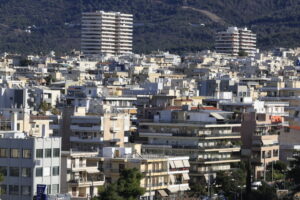The Minister of Social Cohesion and Family, Sofia Zacharaki, is set to present the bill on social housing exchange to the Cabinet tomorrow, Wednesday.
The proposed legislation aims to strengthen and optimize the institutional framework for social housing exchange, fostering collaboration between the public and private sectors to establish a stock of social housing. These homes will be available under affordable, socially regulated rental terms for eligible beneficiaries.
Specifically, this bill seeks to expand the existing framework and establish new legal provisions for property management, providing incentives and improved procedures for private sector participation. The goal is to encourage private entities to actively engage in the construction and/or renovation of properties on public land within urban centers—land that has remained underutilized or neglected—to develop a sustainable stock of social housing. These properties will be kept in livable condition and allocated to eligible beneficiaries based on financial and social criteria.
The immediate goal is to create 2,500 new homes on public land and repurpose 1,600 vacant properties.
The plan aims to address the housing needs of 5,000 young individuals up to 39 years old or young couples by offering apartments either at affordable “social” rents, for purchase, or through the innovative “rent-to-own” model (leasing with an option to buy).
The “Social Housing Exchange” program is expected to significantly bolster housing availability, introducing a new model for utilizing public land and properties while also responding to the growing demand for affordable housing among young people and couples.
The first homes under this program are expected to be delivered in 2025, with rental prices set according to social and financial criteria, ensuring affordable housing solutions for vulnerable groups. Special provisions will be made for families with three or more children, while the state will retain ownership of the properties, granting long-term exploitation rights to developers, thus ensuring zero fiscal burden.
To implement the program, 98 public plots of land owned by DYPA (Public Employment Service) have been allocated, totaling 627 acres, along with an additional 11 plots with building permits covering 75 acres. The new housing developments will be located in areas such as Kifisia, Paiania, and Marousi, as well as in out-of-plan zones and unused homes ready for occupation.
The process of selecting developers will be conducted through competitive tenders with strict technical specifications, while DYPA will oversee the invitation and selection of beneficiaries based on social criteria. The rental terms, selection procedures, and details regarding property acquisition will be defined through a Joint Ministerial Decision.
Ask me anything
Explore related questions





